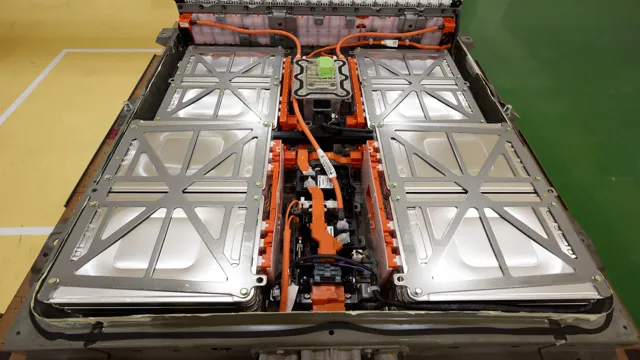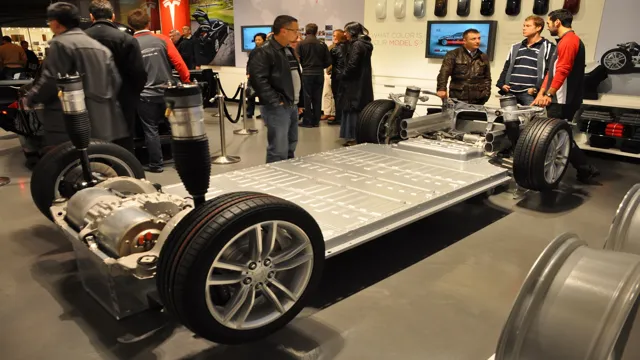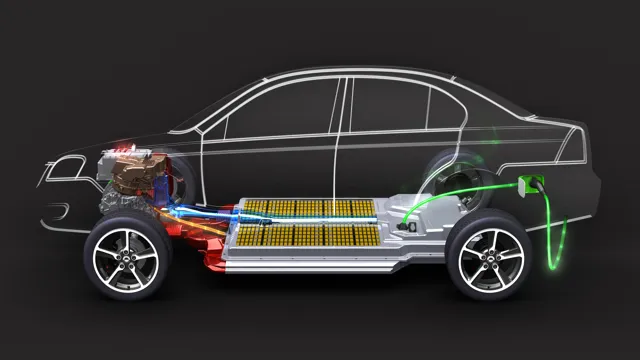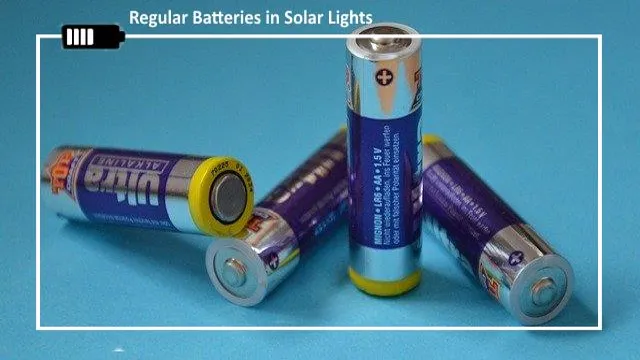The Shocking Truth About the CO2 Cost of Electric Car Battery: Are Electric Cars Really Environmentally Friendly?
Are you in the market for an electric car? Exciting as it may sound, you might want to consider the carbon footprint that comes with it. Sure, electric cars help mitigate greenhouse gas emissions as they run on clean energy. However, have you ever wondered about their CO2 cost of production, specifically their batteries? The electric car battery production process is considered one of the most carbon-intensive stages of its lifecycle, primarily due to the mining, refining, and manufacturing of materials like lithium, cobalt, nickel, and manganese.
In this blog post, we will delve into the CO2 cost of electric car batteries, examining how it affects the environment and what steps are being taken to make the production process cleaner and more sustainable. Join us as we explore the intricate world of electric car batteries and discover the impact of these innovative machines on the environment.
How Electric Car Batteries Impact the Environment
When it comes to the CO2 cost of an electric car battery, many people assume that because electric vehicles produce no direct emissions, they have a much smaller carbon footprint than traditional gas-powered cars. However, the reality is more complex. While an electric car produces no tailpipe emissions, the battery that powers the car does have an initial environmental cost.
The production of the battery involves mining and processing materials, such as cobalt, lithium, and nickel, which can have negative environmental and social impacts. Furthermore, the production of the battery requires a significant amount of energy, which often comes from fossil fuels. However, despite these environmental costs, electric cars are still generally considered to have a lower carbon footprint over their lifetimes compared to gas-powered cars.
This is due to the fact that electric cars produce fewer emissions over the course of their lifetime, including during their manufacturing, use, and disposal. In other words, while there is an initial carbon cost associated with the production of electric car batteries, their overall environmental impact is still significantly lower than that of traditional cars.
Understanding the CO2 Emissions in Battery Production
Electric car batteries are marketed as a more environmentally-friendly alternative to traditional fossil fuel-powered vehicles. However, the production of electric car batteries also has an impact on the environment. The main contributor to this impact is the amount of carbon dioxide emissions that are released during the battery production process.
The production process involves the mining of materials, such as lithium, nickel, and cobalt, which are used to make the battery. The extraction process produces a significant amount of CO2 emissions, as well as other toxic substances that are harmful to the environment. Moreover, manufacturing the battery cells itself requires a high degree of energy use, which is sourced from fossil fuel-powered grid networks, its distribution, and transportation.
Despite these emissions, it’s important to keep in mind that electric car batteries still have a significantly lower overall carbon footprint than traditional gasoline cars, making them a step in the right direction towards a more sustainable future.
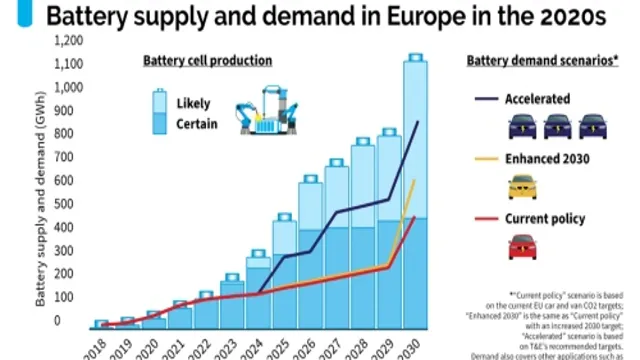
CO2 Cost Comparison: Electric Car vs Gasoline Car Battery
When it comes to comparing the environmental impact of electric car batteries versus gasoline car batteries, the main keyword is “CO2 cost.” While electric cars may seem like the better choice for the environment, there is still debate about the true environmental impact of producing their batteries. While electric car batteries do reduce emissions from driving, the production of these batteries requires a significant amount of energy and resources.
On the other hand, gasoline car batteries have a higher environmental impact from emissions while driving, but their production requires less energy and resources. It’s important to weigh the pros and cons of each option before making a decision on which type of car to purchase. Ultimately, the goal should be to reduce overall CO2 emissions, whether it’s through electric or gasoline cars, or exploring other sustainable transportation options.
Factors that Affect CO2 Cost in Battery Production
When it comes to the CO2 cost of electric car battery production, there are several factors to consider. One major factor is the source of the materials used in the production process. If the materials are sourced from areas with high carbon footprints or if they have to be transported long distances, then the CO2 emissions will be higher.
Another important factor is the type of energy used in the manufacturing process. If renewable energy sources such as wind or solar power are used, the CO2 cost will be much lower compared to if traditional energy sources like coal or oil are used. Additionally, the efficiency of the manufacturing process is also important.
By optimizing the production process and minimizing waste, the CO2 emissions can be reduced. In conclusion, while electric cars may produce lower emissions during operation than gas-powered cars, it is important to consider the CO2 cost of electric car battery production in order to fully understand their environmental impact.
Battery Manufacturing Energy and Resource Use
Battery manufacturing is crucial for the production of electric vehicles and other portable electronics. Despite the many benefits of these products, the process of manufacturing batteries can have a significant impact on the environment, specifically through carbon dioxide (CO2) emissions. There are several factors that affect the CO2 cost in battery production, including the type of battery being produced, the materials used, the energy sources being utilized, and the manufacturing process itself.
For instance, batteries that require large amounts of rare earth metals or have complex manufacturing processes require more energy, thereby contributing more to CO2 emissions. Energy sources used in manufacturing, such as coal or natural gas, can also contribute greatly to the overall carbon footprint of the battery. Therefore, reducing the energy and resource use in battery production could go a long way in helping to reduce the environmental impact of this industry.
CO2 Emissions in Battery Materials Extraction
CO2 emissions in battery materials extraction When it comes to the production of electric vehicle batteries, a lot of focus is placed on the potential for CO2 emissions during the use of the vehicles. However, it’s important to consider the CO2 cost that occurs during the production of the batteries themselves. One of the main factors that affects this cost is the extraction of raw materials.
For instance, the mining of lithium and cobalt, two essential ingredients in many lithium-ion batteries, is known to produce significant CO2 emissions. This is due in part to the energy-intensive nature of the extraction process, which often involves extensive drilling, blasting, and transportation. Additionally, the use of heavy machinery and diesel fuel can contribute further to this carbon footprint.
As such, while electric vehicles may represent an environmentally-friendly transportation option over the long-term, it’s also important for battery manufacturers to prioritize sustainable extraction methods in order to minimize their own carbon impact.
Battery Recycling and Disposal
When it comes to producing batteries, there are a lot of factors that contribute to the cost, including the amount of CO2 emissions generated in their production. The materials used to make batteries vary widely, as do the processes used to extract and refine them. In general, the higher the amount of CO2 generated during the production process, the greater the cost of the battery.
This is because manufacturers must pay for emissions allowances or invest in emission-reducing technologies in order to comply with environmental regulations. Other factors that may influence the CO2 cost of batteries include the type of transport used to move raw materials and finished products, the efficiency of production facilities, and the energy sources used to power those facilities. As consumers become increasingly concerned about the environmental impact of their purchases, battery makers will need to find ways to reduce both the cost and environmental footprint of their products.
Reducing CO2 Cost in Electric Car Battery Production
As electric cars become increasingly popular, there is a growing concern over the carbon footprint of their battery production. The production of electric car batteries results in a substantial amount of CO2 emissions due to the mining of raw materials, transportation of materials, and the manufacturing process itself. However, reducing the CO2 cost of electric car battery production is not impossible.
Many companies are now working towards creating more sustainable and eco-friendly battery production processes. One approach is to use recycled materials such as old batteries and metals instead of mining for new materials. Additionally, advancements in technology have made it possible to generate electricity from renewable sources such as solar and wind power, reducing reliance on fossil fuels.
By implementing these measures, the CO2 cost of electric car battery production can be significantly reduced, making electric vehicles a more environmentally friendly option.
Innovations in Battery Production Technology
Electric Car Battery Production As the demand for electric vehicles (EVs) increases, it’s important to keep pace with innovations in battery production. One of the biggest challenges facing the industry is the cost of producing batteries that are up to the demanding standards expected by consumers. However, with new advancements in technology and manufacturing processes, it’s becoming increasingly possible to reduce the CO2 cost of producing batteries.
For example, some manufacturers are now using renewable energy sources to power battery factories, and are producing batteries with less energy-intensive materials, which helps to reduce the environmental impact significantly. By developing new, sustainable approaches to battery production, we can help to ensure that EVs become a more accessible, affordable, and environmentally-friendly mode of transportation.
Increased Use of Renewable Energy in Battery Manufacturing
The increased use of renewable energy in battery manufacturing has become a significant trend in recent times. One of the biggest challenges that the electric vehicle industry faces is the high cost of carbon dioxide emissions produced in battery manufacturing. Many companies are now embracing renewable energy as an alternative to traditional energy sources to reduce the CO2 cost in battery production.
By using renewable energy to power the manufacturing process, electric vehicle industries are reducing their carbon footprint, which, in turn, is helping the environment. Renewable energy sources like solar and wind power can also help to save money in the long run as they are much cheaper than fossil fuels. With the increasing demand for electric vehicles, it’s essential that the industry continues to explore alternative energy sources to make the production process more sustainable and cost-effective.
The Future of Electric Car Batteries and CO2 Cost
The CO2 cost of electric car batteries is a topic of concern, but advancements in technology are working towards reducing their environmental impact. Currently, the production of lithium-ion batteries, which are widely used in electric vehicles, emits a significant amount of CO However, researchers are exploring alternative materials for batteries that could improve their sustainability and reduce CO2 emissions.
Additionally, initiatives are being taken to increase the reuse and recycling of old batteries, which could significantly decrease their environmental footprint. As the demand for electric vehicles continues to rise, it is essential to prioritize the development of sustainable battery technology to reduce the negative impact on the environment. Overall, while there are currently challenges to overcome in the production and disposal of electric car batteries, promising developments in technology and sustainability efforts provide hope for a greener future.
Conclusion
In conclusion, the CO2 cost of an electric car battery is definitely a factor to consider in the overall environmental impact of the vehicle. While the batteries may appear to be a sustainable solution to transportation, the manufacturing process and disposal of the batteries must be taken into account. However, don’t let this discourage you from considering an electric car – after all, it’s still a step towards reducing our dependency on fossil fuels and creating a more sustainable future.
Plus, if you really want to lower your electric car’s carbon footprint, you can always generate your own energy with a solar panel. As they say, every watt counts!”
FAQs
What is the average cost of an electric car battery?
The cost of an electric car battery can vary, but on average, it can range from $5,500 to $7,000.
How does the cost of a traditional gasoline car compare to the cost of an electric car in terms of battery replacement?
The cost of replacing a battery in a traditional gasoline car is typically much less than the cost of replacing a battery in an electric car, as electric car batteries are more expensive.
Does the cost of an electric car battery include the cost of production and disposal?
Yes, the cost of an electric car battery includes the cost of production, which can involve the use of materials such as lithium, cobalt, and nickel. The cost also includes disposal fees.
How does the production of an electric car battery impact CO2 emissions?
The production of an electric car battery can result in CO2 emissions, as it involves the mining, transportation, and manufacturing of materials. However, electric cars produce much lower emissions overall compared to traditional gasoline cars.
